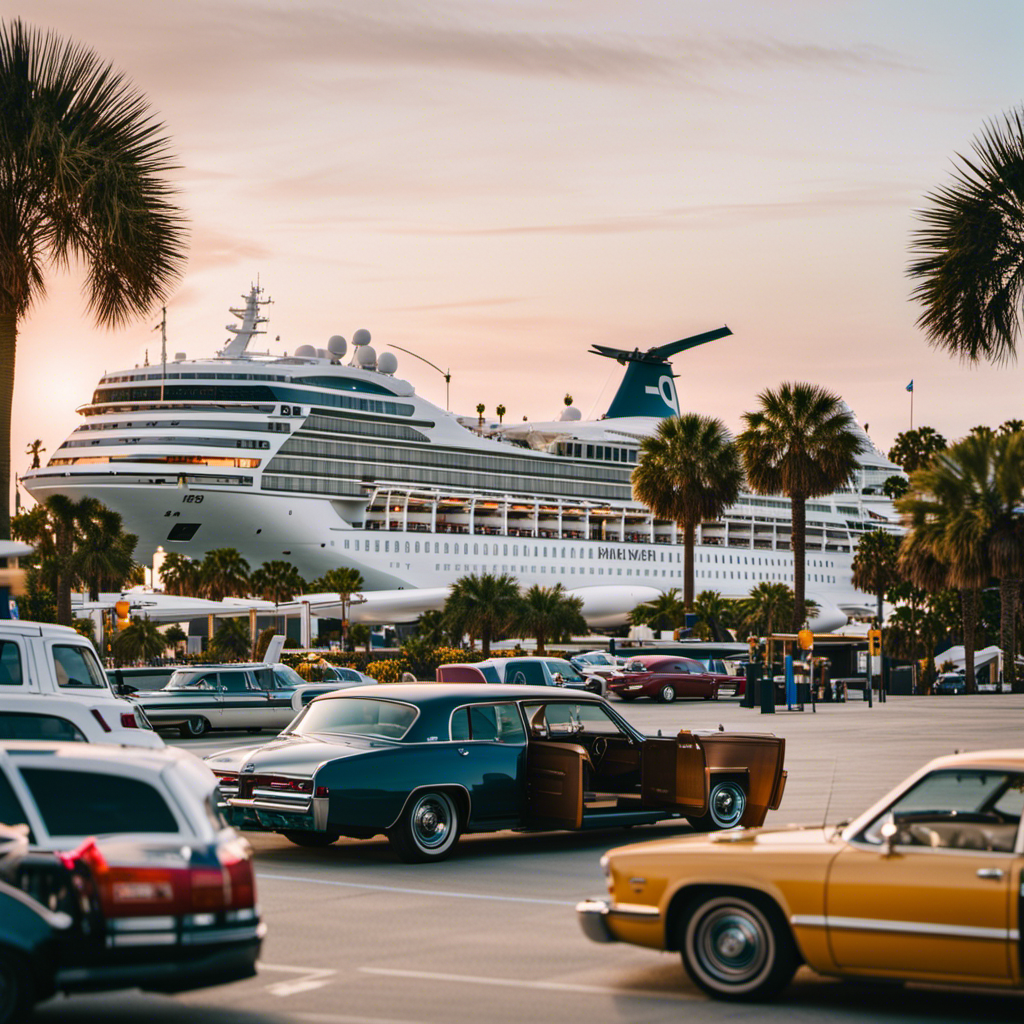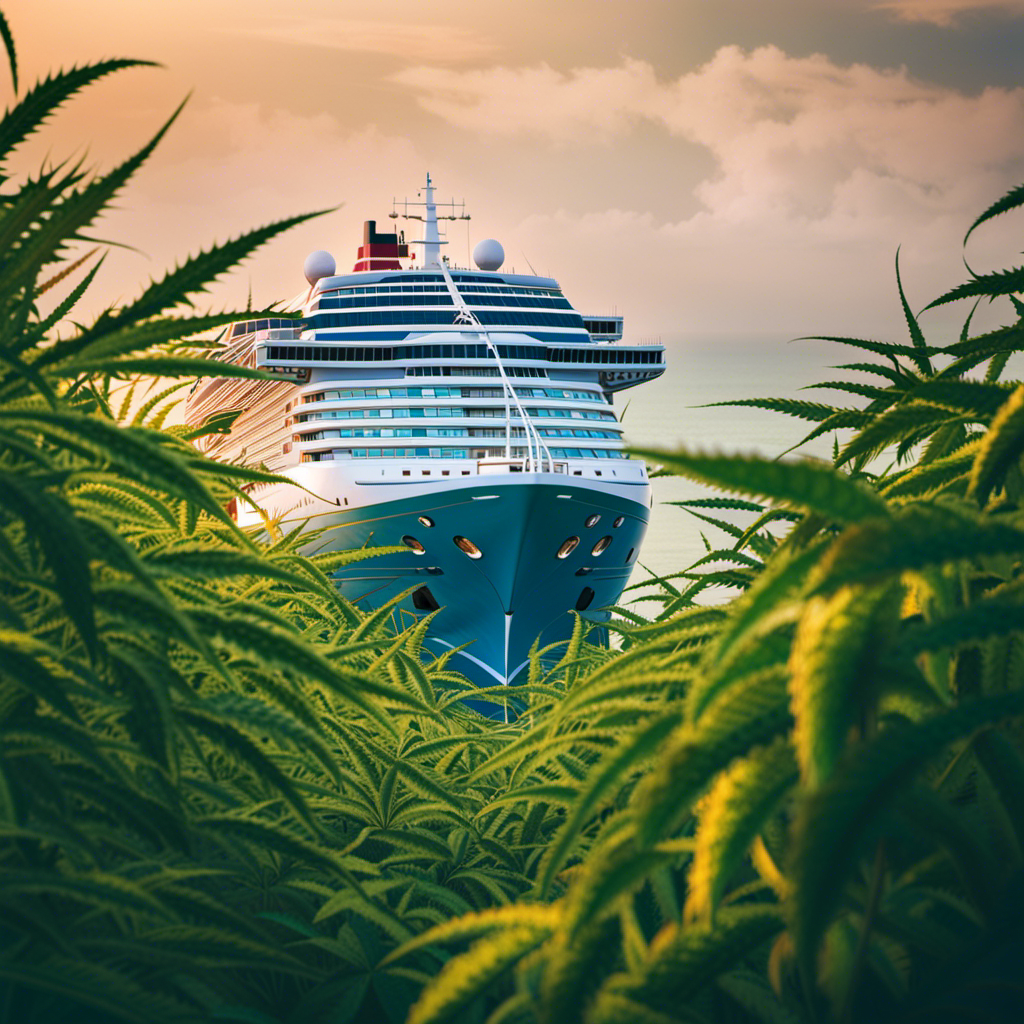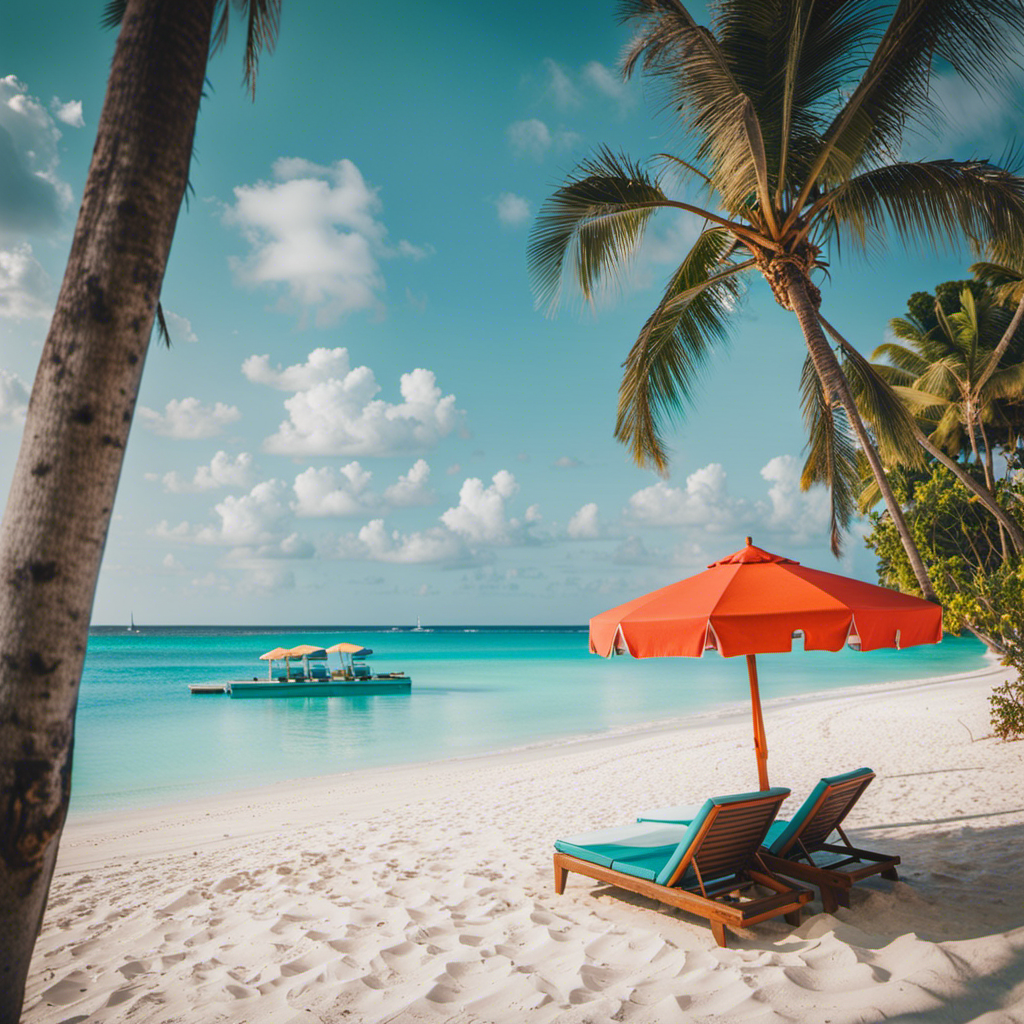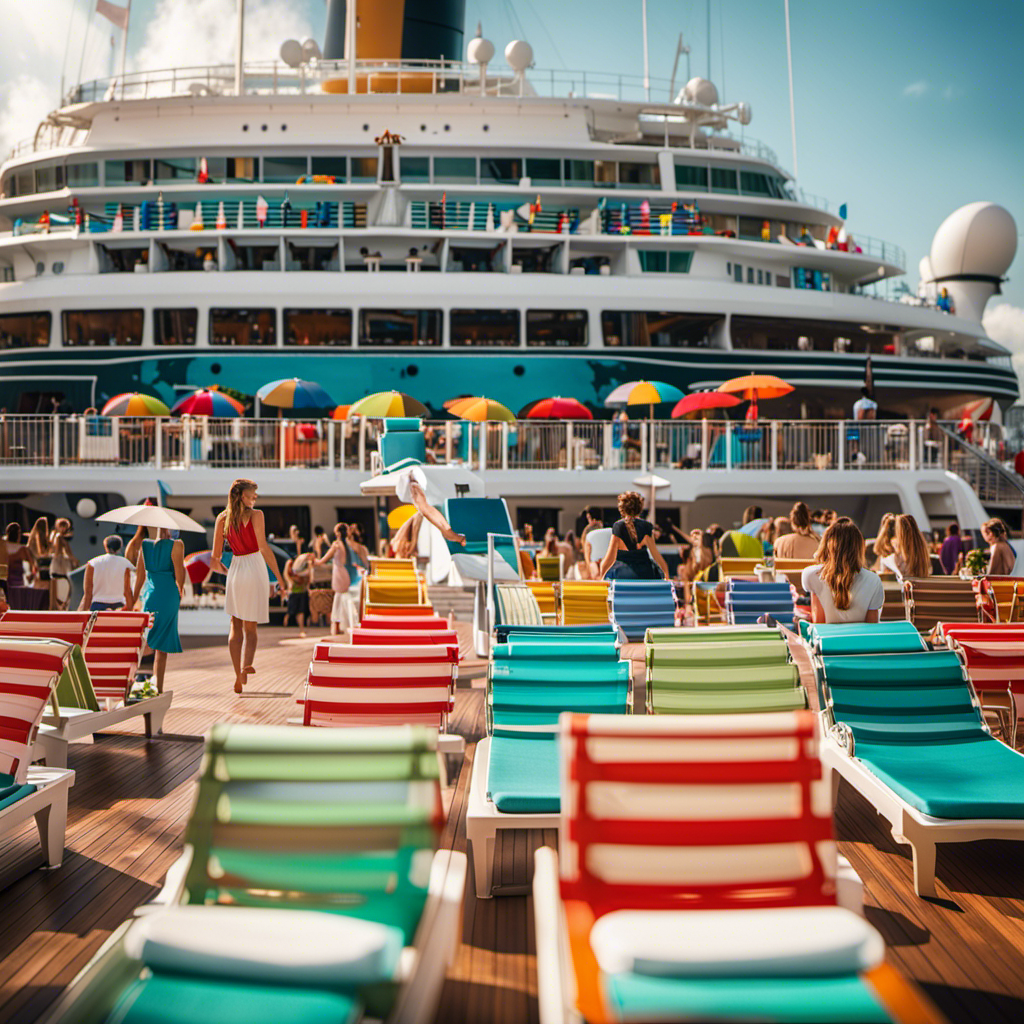I’ve been monitoring the cruise sector’s attempts at rebounding, and it seems there could be a glimmer of hope on the horizon.
The Cruise Lines International Association (CLIA) has called on the Centers for Disease Control and Prevention (CDC) to lift the Framework for Conditional Sailing Order, which has effectively halted cruise operations since October.
With successful resumptions of cruising in other parts of the world and the aggressive vaccine rollout in the United States, it’s time to start charting a course towards a safe and phased resumption of cruise operations.
Key Takeaways
- CLIA, the world’s largest cruise industry trade association, has called on the CDC to lift the Framework for Conditional Sailing Order.
- The industry faces challenges with the strict guidelines of the conditional sail order, which many see as a de facto no-sail order.
- Successful cruising has resumed in other parts of the world with industry-leading protocols effectively mitigating the spread of COVID-19.
- The aggressive vaccine rollout in the United States is crucial for the safe resumption of cruise operations, and CLIA is considering vaccines as part of their overall plan.
Current Status of the Cruise Industry
As of now, the cruise industry is facing challenges due to the strict guidelines of the conditional sail order, making it difficult for cruise lines to resume operations. The industry’s recovery and the future of cruising depend heavily on the lifting of these restrictions.
The conditional sail order, established in October, has been seen by many as a de facto no-sail order, as meeting the conditions set forth in the order has proven to be nearly impossible for cruise lines. However, successful cruising has resumed in other parts of the world, such as Europe, Asia, and the South Pacific, where industry-leading protocols have effectively mitigated the spread of COVID-19.
The importance of aggressive vaccine rollout in the United States cannot be overstated, as vaccines are a gamechanger for the health and well-being of the public. The Cruise Lines International Association (CLIA) is currently determining the best policies and practices for cruise lines, including the consideration of vaccinations as part of the overall plan for the resumption of operations.
Clia’s Call to Lift the CDC Cruise Order
I believe it is crucial for the CDC to reconsider and revise the current guidelines in order to allow for a safe and timely resumption of the cruise industry.
From CLIA’s perspective, the CDC’s response to the call for lifting the Framework for Conditional Sailing Order has been a point of contention. The cruise industry trade association, representing 95% of global ocean-going cruise capacity, has called for a phased resumption of cruise operations from U.S. ports by July. However, the strict guidelines outlined in the conditional sail order have been seen by many as a de facto no-sail order.
Meeting the conditions set forth by the CDC has proven nearly impossible for cruise lines, leading to difficulties in complying with the order. In contrast, successful cruising has been observed in other parts of the world, where industry-leading protocols effectively mitigated the spread of COVID-19.
The importance of the vaccine rollout cannot be overstated in the safe resumption of cruise operations. With millions of high-risk Americans now fully vaccinated, the cruise industry has adopted a multi-layered set of policies that can be revised as conditions change. Although CLIA does not currently have a policy related to vaccines, some cruise lines have made them mandatory for passengers. CLIA is actively working on developing an overall plan for the resumption of operations, with vaccinations being considered as part of the plan.
It is essential for the CDC to take CLIA’s perspective into account and respond accordingly to ensure a safe and timely resumption of the cruise industry.
Challenges Faced by the Industry Under the Conditional Sail Order
Meeting the strict guidelines outlined in the conditional sail order proved to be nearly impossible for cruise lines, leading to significant difficulties in complying with the requirements. The industry faced numerous challenges under this order, which was established in October. Many saw it as a de facto no-sail order, as meeting the conditions seemed almost unattainable.
The guidelines were stringent and demanding, making it hard for cruise lines to navigate through them successfully. From implementing comprehensive health and safety protocols to conducting extensive testing, the industry encountered compliance difficulties at every step.
Despite these challenges, successful cruising has resumed in other parts of the world, showcasing the effectiveness of industry-leading protocols. However, for cruising to resume in the United States, an aggressive vaccine rollout is crucial. Vaccines are seen as a gamechanger, ensuring the health and well-being of passengers and crew.
The industry is actively working on developing an overall plan for the safe resumption of operations, including considering vaccination as part of the strategy.
Successful Resumption of Cruising in Other Parts of the World
Cruising has successfully resumed in various parts of the world, with over 400,000 passengers sailing in 10 major cruise markets. Industry-leading protocols have effectively mitigated the spread of COVID-19. Europe, Asia, and the South Pacific have seen a controlled resumption of cruising, with additional sailings planned in the Mediterranean and Caribbean.
The implementation of effective protocols has played a crucial role in ensuring the safety of passengers and crew members. These protocols include rigorous health screenings, increased sanitation measures, mandatory mask-wearing, and social distancing. The reported cases of COVID-19 on cruise ships have been dramatically lower compared to those on land or in other modes of transportation.
This success highlights the importance of implementing and adhering to strict protocols to control the spread of the virus and ensure the safe resumption of cruising.
Importance of Vaccine Rollout for Safe Cruise Operations
The aggressive vaccine rollout in the United States is crucial for the cruise industry to resume operations in a safe and responsible manner.
- Vaccine rollout impact:
- Vaccines are a gamechanger for the health and well-being of the public.
- Millions of high-risk Americans are now fully vaccinated.
- Cruise industry has adopted a multi-layered set of policies.
- Policies are intended to be revised as conditions change.
The cruise industry recovery heavily relies on the successful distribution of vaccines. With millions of Americans now vaccinated, the industry can begin to envision a path towards resumption. Vaccines offer a significant level of protection against the spread of COVID-19, allowing cruise ships to operate more safely.
The cruise industry has implemented comprehensive protocols to mitigate the risks associated with the virus. These protocols will continue to evolve as more people are vaccinated and as the overall situation improves.
The vaccine rollout has provided hope for the cruise industry’s recovery, signaling a potential return to normalcy in the near future.
Frequently Asked Questions
What Specific Guidelines Were Established in the Conditional Sail Order?
Specific guidelines established in the Conditional Sail Order included strict protocols for testing, screening, and surveillance. These guidelines aimed to ensure the safety of passengers and crew, but were seen by many as challenging and nearly impossible for cruise lines to meet.
How Have Cruise Lines in Other Parts of the World Effectively Mitigated the Spread of Covid-19?
Cruise line protocols in Europe, Asia, and the South Pacific successfully mitigated COVID-19 spread. Over 400,000 passengers sailed in 10 major markets, with dramatically lower reported cases on cruise ships compared to land or other transportation modes.
What Measures Are Cruise Lines Taking to Ensure the Health and Well-Being of Passengers and Crew?
Cruise lines have implemented comprehensive safety measures for the health and well-being of passengers and crew. These precautions include enhanced cleaning protocols, mandatory health screenings, social distancing measures, and the adoption of industry-leading health and safety guidelines.
Are Vaccines Currently Mandatory for Passengers on All Cruise Lines?
Vaccine requirements for passengers on cruise lines vary. Some cruise lines have made vaccines mandatory for passenger safety. However, CLIA, the industry trade association, is still determining the best policies and practices for cruise lines regarding vaccine requirements.
What Is Clia’s Plan for the Resumption of Cruise Operations in the United States?
CLIA’s plan for resumption of cruise operations in the United States includes developing an overall strategy and considering vaccinations as part of the plan. Vaccination requirements for passengers on cruise lines are still being determined.
Conclusion
In conclusion, the Cruise Lines International Association (CLIA) has called on the Centers for Disease Control and Prevention (CDC) to lift the Framework for Conditional Sailing Order in order to safely resume cruise operations.
The successful resumption of cruising in other parts of the world, coupled with the aggressive vaccine rollout in the United States, supports CLIA’s argument for a phased resumption of operations by July.
One hypothetical example to consider is the case of a cruise ship in Europe that implemented industry-leading protocols, including mandatory testing and social distancing measures, resulting in zero COVID-19 cases among passengers and crew.
This demonstrates the effectiveness of robust health and safety measures in mitigating the spread of the virus on board.










